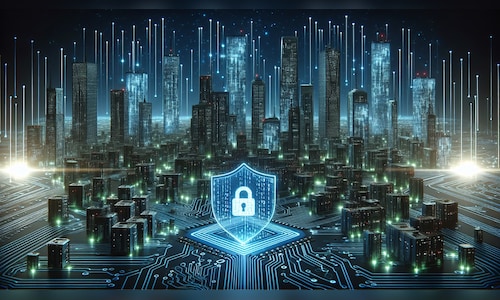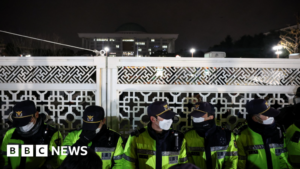

What are digital arrests? Scamsters posing as police or law enforcement officials call potential victims, alleging that they (the victims) have been implicated in a serious crime. The fraudsters then insist that they connect over a video call, forcing the victim to pay up and avoid arrest.
The government has issued a warning against the digital arrest menace. Prime Minister Modi too addressed this issue during one of his Mann Ki Baat addresses.
To discuess digital arrests and how to safeguard oneself from them, CNBC-TV18 spoke to Yashasvi Yadav, Special IGP of the Maharashtra Cyber Department; Rizwan Merchant, a lawyer; and Prashant Mali, a lawyer and cyber law expert.
Edited excerpt:
Q: Help us understand the process. Can you broadly explain how an investigating agency or a law enforcement agency makes an arrest, records a statement, and conducts medical checkup and body verification so that our viewers can differentiate between a genuine query from the cops and a probable scam?
Yadav: Awareness about cybercrime in general, and digital arrest in particular, is very much needed. Because, every day, we see victims falling prey to this menace and getting robbed of their hard-earned money. So, first of all, I must tell everybody that there is no provision for “digital arrest” in any law, be it a law governing police, enforcement directorate, CBI, income tax authorities or any other agency.
So, if anybody asks you to remain in front of the camera and directs that you are under digital arrest, it is just a fraud. One must immediately call 1930, which is a pan-India helpline related to financial frauds, and a law enforcement officer will answer.
Secondly, I can say that, with more than 700 million smartphones in India, cyber security has become a very big issue, and the only way to fight is to generate awareness.
Read Here | Stock market scams | ‘OMG’ tips to stay safe as fraudsters target retail investors
Q: This is a relatively new area for you guys also, so what are the key challenges law enforcement agencies face while tackling these cases and cybercriminals?
Yadav: The key challenge is that India is a very populous state — we have more than 70 crore smartphones in the hands of people, but commensurate awareness has not seeped in. We have people who are very gullible about these cyber security issues, and then, with digital arrests, scamsters have reached a level of sophistication, which is unprecedented. They pose as police officers in exactly the same uniform in a spic-and-span ambience, which makes it very much akin to reality. That’s why people fall prey to this kind of digital arrest scam. Not just common people, but we have seen educationalists, doctors, scientists, and even law enforcement officers falling prey to this menace. The only way to curb or minimise it is through awareness.
Q: My next question is about skilled and trained manpower. So, as I said, it is a relatively new area for law enforcement agency agencies. Do you think that skilled manpower, trained manpower, is a challenge you are facing?
Yadav: Of course, see, getting resources—the right kind of resources—for law enforcement agencies is a challenge, but I must tell you that the Maharashtra government has launched an exemplary project worth about ₹1,000 crore, comprising sophisticated software tools related to cyber security, and training manpower. Also, we have launched a dedicated cybercrime helpline, 14407. Any person in Maharashtra falling prey to any kind of cybercrime, including digital arrest, can call the helpline, which will set the process of law into motion. An FIR, too, can be registered, and these criminals can be caught.
Detection is the best form of prevention. If you can arrest these criminals effectively, it will go a long way in minimising the dangers of digital arrest. Also, there is a concept called Golden Hour, which means as soon as a person realises that s/he has been scammed, within an hour, s/he should report the incident to any of these helplines—1930 or 14407—in Maharashtra, so that we can take immediate action and trace the money to the scamster’s account. That account can be frozen, making it possible for that money to return to the victim.
Read Here | 17,000 WhatsApp accounts of South Asian cyber crooks blocked by India
Q: Fake arrest warrants, FIRs, court summons and other court-related documents are also being used by these scamsters to lure their victims. Can you broadly explain the process — how exactly are court documents served to people?
Merchant: First of all, the Code of Criminal Procedure lays down the necessary procedure for arrest. An arrest can be effected with or without a warrant. It can be an arrest pursuant to a court order, or by a police officer without a warrant. If it is a court-directed arrest on the basis of a warrant, we have a particular format for the document. But, unfortunately, what is happening in this case is that the format of the warrant being used is of different states. The Code of Criminal Procedure mandates that a particular format be used to issue the warrant, which is then handed over to the police department or the law enforcement agency concerned.They then proceed make a physical arrest. There is no such thing as digital arrest.
The menaces of cybercrime and fraudsters have been so deeply ingrained in this virtual world that mere prevention, suppression, or spreading awareness among the public is insufficient. We have something known as organised crime, and we have something known as transnational organised crime. The issue of transnational organised crime has been addressed by a convention by the United Nations, where transnational organised crimes are being identified for three purposes — prevention, suppression, and punishment.
Now, unless you identify people, it’s impossible to cut that nexus, which is created in this virtual world. I don’t buy the story that a handful of people in some part of India, using the necessary internet bandwidth, are carrying out these frauds. Recently, there was a news report that said these frauds are being conducted from overseas, where youth interested in information technology are invited to certain countries identified in the report as being in Southeast Asia.
Now, those countries would also be covered under the UN convention. Now, the Bharat Nyaya Sanhita (BNS)—the new CrPC—has introduced the Mutual Legal Assistance Treaty (MLAT), which is nothing but a contract between, say, two countries to prevent, suppress, identify and punish transnational organised crime. This is not an ordinary offence which can be brought within the ambit of the IPC.
Q: I want to understand the legal aspect of it. What exactly are the legal remedies available right now to the victims, and also what sections and acts are in place? Do you think that is enough, and in your opinion, what can be the area of improvement here?
Mali: So right now, the laws are very clear. We have the IT Act 2000, and we have the BNS, and in both acts, there are sections—66C, 66D of the IT Act, and a barrage of sections for cheating, forgery, or forgery of electronic records under BNS. So we have the sections and police action on mule accounts. Now. See, the issue is, police are taking action and catching the mule accounts where the first level of money is going, but not the kingpin. And the kingpin, in many cases, is sitting in Cambodia, Bangkok, or Dubai. These are three of the countries that have come into the picture. Getting those kingpins or the ground soldiers in India is very important, or else, we are not going to get respite from this kind of fraud. Cambodia, the place from where they are acting, is a lawless part (of the world).
Even if we have transnational laws, we can’t reach there because of its complete lawlessness; compliance is difficult. Right now, we need mass awareness and in vernacular language. Second, it is very important to create deterrence amongst people who participate in digital arrests or other cyber scams. These gangs are operating in various states. There are villages which get involved in all this. These gangs and these villages, which only do cybercrime, need to be exposed and reformed. Till we take some action, like freezing their bank accounts, denying loans to their family members, publishing their names everywhere and banning them, taking them out of society, is the only long-term measure.
For the full interview, watch the accompanying video.
Also Read | Home Minister Amit Shah urges agencies to use AI for checking cybercrime



